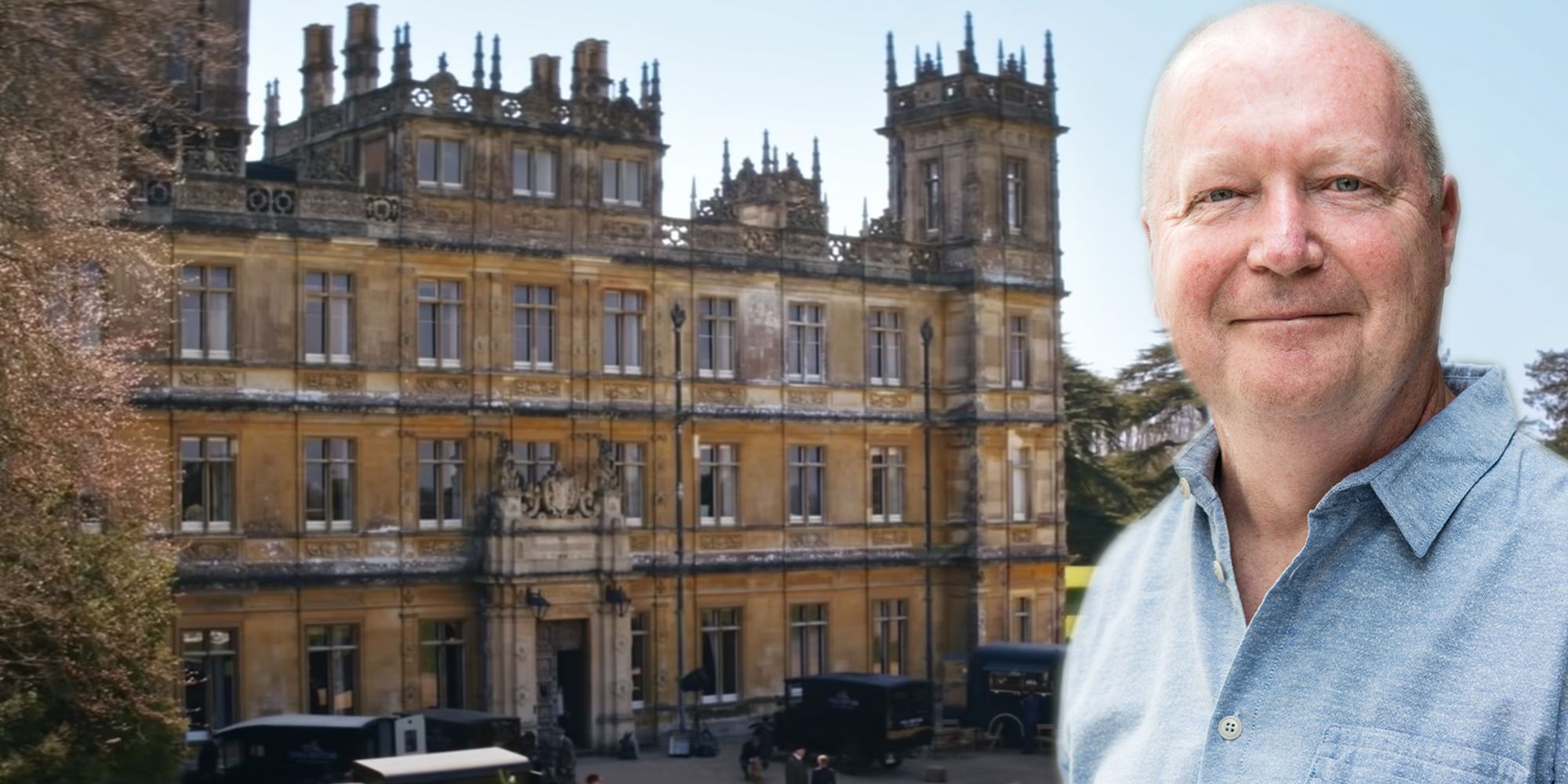
Downton Abbey: A New Era has landed, proving itself to be a fitting continuation of the Crawley family story. Written by series creator Julian Fellowes and directed by Simon Curtis, Downton Abbey: A New Era takes the Crawley family into new territory - literally - as they visit the south of France. Featuring much of the original cast, the sequel to 2019's Downton Abbey film exudes the same charm and wit that made the franchise so beloved in the first place.
Just as Downton Abbey: A New Era marks the return of Fellowes and the series' cast, the new film features the return of longtime series composer John Lunn. Lunn has previously won two Emmy awards for his work on the series, and the lush musical landscape he has created is larger and richer than ever.
Lunn spoke with Screen Rant about the musical opportunities presented by the film, reuniting with director Simon Curtis, and whether or not this is the end of Downton Abbey.
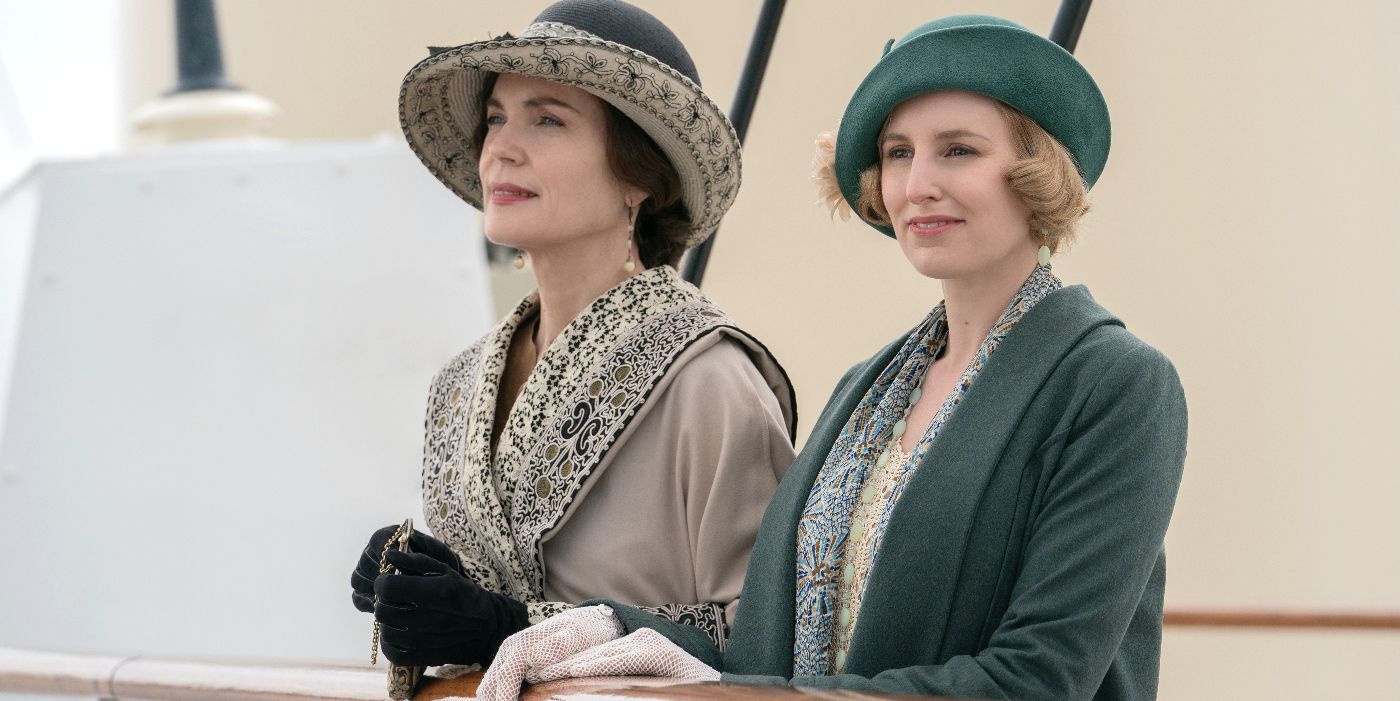
Screen Rant: Downton Abbey: A New Era was directed by Simon Curtis, who you last worked with in 2005. What was it like to reunite on this, especially with you already being a veteran of the world?
John Lunn: It was really handy, because I got on really well with Simon. We'd talked before about working together, but it never kind of quite happened. And when I'd heard he was doing it, I originally thought "Oh, great. We're in safe hands, and I'll definitely enjoy working with him as well." He brought along with him his editor as well, and he was the same editor that was on [Lunn's last collaboration with Curtis] Twenty Thousand Streets Under the Sky, so that was all incredibly useful, really.
We didn't have to spend a lot of time getting to know one another, and anyway it would have been difficult because we were under COVID restrictions. It was just as well that we all kind of knew each other, so it worked really well.
Screen Rant: Are there craft differences when you're working on the Downton Abbey films as opposed to the series? Is your music team smaller for a film, or do you have more time to compose, anything like that?
John Lunn: While I'm writing it, the team is pretty much as it was before. It's not really that different, we're definitely using a bigger orchestra, so the team on the day of recording is probably bigger than we would have had on the TV series, but for me, it's pretty much the same. The music's always been about the relationships between people, and that kind of really hasn't changed. I mean, the only thing that's really changed for me is just the scale of it.
And then, in this movie, what's been interesting for me is the fact that we've got several new story and plot lines that need music that we've never really had before. Like the Crawleys going to the south of France, that clearly needed some kind of new musical statement. There's a film crew that come to - they actually hire Downton Abbey to make a film, and it's just that crossover between silent movies and talkies.
That also needed a whole new kind of music strand, which was really interesting for me, and then the last ten minutes was really quite moving, and it's mainly driven by music. And so, I think what I love about this film is, for me, is that the contrast is probably the greatest. There's a great amount of variety of different styles of music within the film, while it's still sounding like Downton Abbey, I think.
Screen Rant: Let's start with France. When you're scoring for the scenes that are set there, how do you approach that? What's different in how you approach that as opposed to what you've been doing?
John Lunn: It just needed a new kind of flavor, I started thinking about a slightly different orchestra. I brought in a celeste. I'd used harp before but I used the harp in a different way this time, and I used more flutes and oboe, which we'd never used before in Downton Abbey. It's incredible, but we'd never used a flute or an oboe. So that was really useful, and it really helped to give the whole thing a different flavor.
And I listened to quite a lot of French music from the turn of the century. Plus, I'm a big fan of Debussy and Ravel, you can probably hear a bit of that in there. And then I also listened to - I'm a big fan of things like Charles Aznavour, those sort of '50s French crooners, and the orchestral backing that they had. I'm a really big fan of the way they orchestrated that stuff.
I kind of put all of that together in this sort of Downton way, and I think it does sound very French but somehow it also sounds like Downton Abbey. I mean, don't ask me why, but it does.
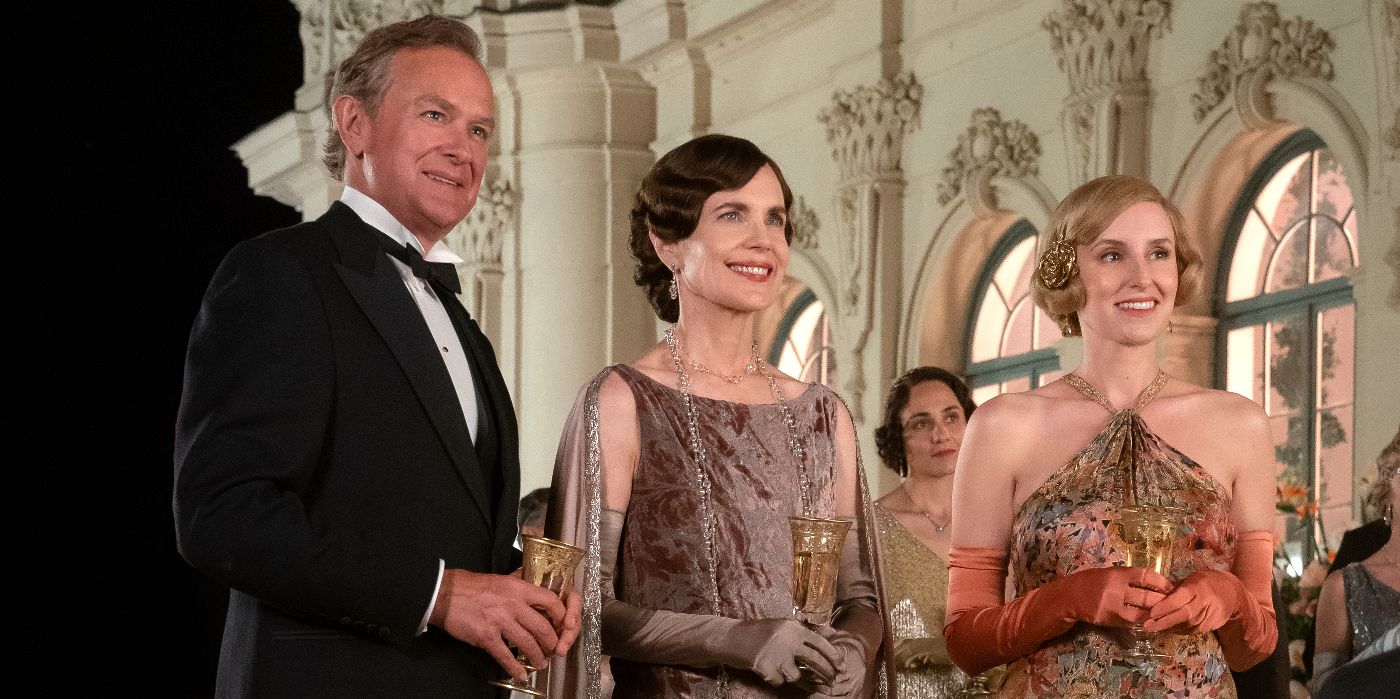
Screen Rant: When you're writing music for these new projects, how conscious are you of balancing music that is known to longtime fans of the series versus coming up with new themes and new pieces?
John Lunn: We definitely think about it, although to be honest, we thought more about it on the first movie. Partly because all the heads of the departments were slightly scared that, now that we've got a movie - we didn't want to change too many things, you know, to give people a shock and [they would] think "Oh my God, this is going off in a completely different direction." We really didn't want to do that, and so we probably played a bit safe, well I think I played a bit safe musically in the first movie, in that we didn't want to go off in a different direction.
But in the second movie, I think we've kind of taken the gloves off and just done exactly what was really right for the scene. I mean, there are definitely elements of things that we've had before that definitely do come back, and they come back for a good reason. They come back for a dramatic reason, not really because "Oh, it'd be great for the fans to hear this bit here." We don't really think like that. If it works for the scene, it works and it goes in, and that's the main criteria.
Screen Rant: You were composing around a silent film storyline, and you also brought in some era-appropriate songs that made it onto the soundtrack. How did you approach doing that, and was it nice to kind of stretch in that way?
John Lunn: To be honest with you, I didn't spend a massive amount of time on that. We spent a bit of time trying to find the right songs, though I think "Crazy Rhythm" was suggested by Julian Fellowes in his script. We did really try hard to clear that and get it used. We also did a bit of research to find out how it would have sounded in those days. We didn't use a drum kit, for instance, we just used an acoustic guitar kind of keeping the rhythm together. It wasn't the hardest part, I have to say. It came quite easily.
Screen Rant: I saw an interview with Julian Fellowes where he said he's had to say goodbye to these characters over and over again. And then, of course, they've kept coming back up to now. Has that been your experience as well? Have you just become so attached to these characters after a decade of scoring for them?
John Lunn: Yeah, I've become very attached to them. I don't think this is the last movie, so I haven't really said goodbye. I mean, when we finished the TV series there was talk of a film, but I genuinely didn't think it would happen. I don't know why, but I didn't think it would happen, so I kind of did say goodbye to the TV series.
Then, the way the first movie was set up, it was kind of clear it was going to carry on. Then technically the way the second movie's been done, the story will carry on. I suspect there will be a third movie. I mean, nothing's decided, but everybody's talking about it already. So... I think now might be the time to say goodbye.
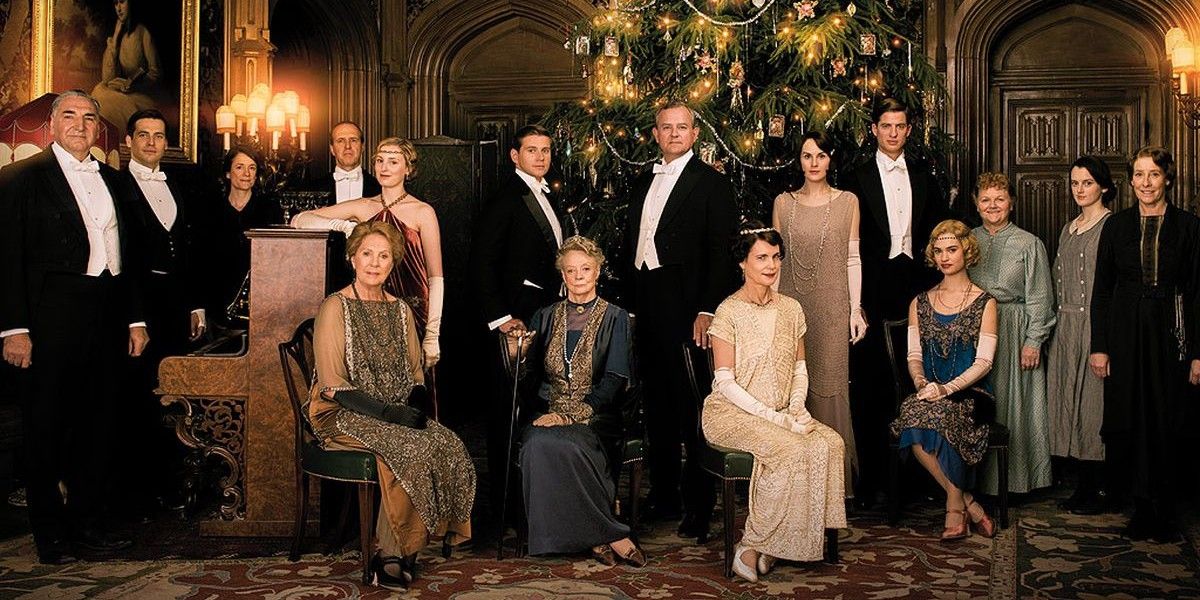
Screen Rant: And you also scored The Last Kingdom, which just wrapped up --
John Lunn: Season five, yeah.
Screen Rant: That score is beautiful as well, but it's so different. Was one project more challenging, or a bigger leap musically for you?
John Lunn: I was really keen to do it because... I think I was still doing Downton Abbey when The Last Kingdom came up, and I just really wanted to do something really different, because I was getting a name for Downton Abbey-style music. Which I love doing, but I really really wanted to do something different, so I was really desperate to do The Last Kingdom. So I actually started work on The Last Kingdom before they'd finished filming because I just wanted to try and get the tone of it. They didn't want a kind of Game of Thrones-style studio orchestral score. And it's not like Game of Thrones, there are no fantasy elements and a lot of is actually based on truth, but there were some similarities. There are shield walls and stuff like that. So that's why I wanted to do a completely different sound world.
I suggested doing it with all analog synths, and that worked up to a point, but I could see there were times when I was going to need something - for all those battles and everything - I needed something more capable of being heroic, or just... anyway, I discovered this singer called Eivør, who is from the Faroe Isles, but actually she lives in Copenhagen. And I saw her on YouTube, and I thought she was fantastic. I nicked a piece of her from YouTube and I plunked it on the end of the first episode of The Last Kingdom, and I added a few things. I did some really distorted double bass, that I played, and some synth chords. And I sent it off and said "Listen, this is the area that I'm thinking of, that might work." And they absolutely loved it.
I got in touch with Eivør and flew her over from Copenhagen to London, and we just recorded in my studio for like three days. And I almost literally gave her a free hand and recorded loads and loads of stuff, and just edited it. And now we've become really good friends. It just really clicked, and now we - basically I organize a cue, and then I send it off to her, and she does her thing and then I kind of edit it when it comes back. Basically, I give her a pretty free reign. She's really, really good. She's a very quick learner. She's gotten very good at looking at a scene and deciding what it is that's needed.
We're just about to start work. I'm just waiting for the cut of the - we're doing this two-hour movie of The Last Kingdom for Netflix. I haven't seen it yet. It was supposed to be here last Friday, and it's supposed to be coming tomorrow, but I'm not sure it is.
Screen Rant: When you and Eivør first started working together, were you composing to picture? Or were you just coming up with ideas and fitting that in later?
John Lunn: No, I was composing to picture. The picture hadn't been locked, but we were definitely composing to picture.
Screen Rant: You've composed a number of operas and other pieces outside of scoring films. Is that your idea of taking a break? And do you have any plans - are there more genres or pieces like that that you'd like to get into in the future?
John Lunn: I think I'm too old. At one point, I did want to be a contemporary classical composer, but that's gone now. And I've done too many different styles of music to actually know what's mine anymore. I'd quite like to do an album of my own. The problem is there's too much work around!
There's so much work going on, particularly in TV. TV's just exploded here in Britain, and I know it's the same in America. I can't really do it all; I just don't really have time. But maybe one day, I'll get back into that.
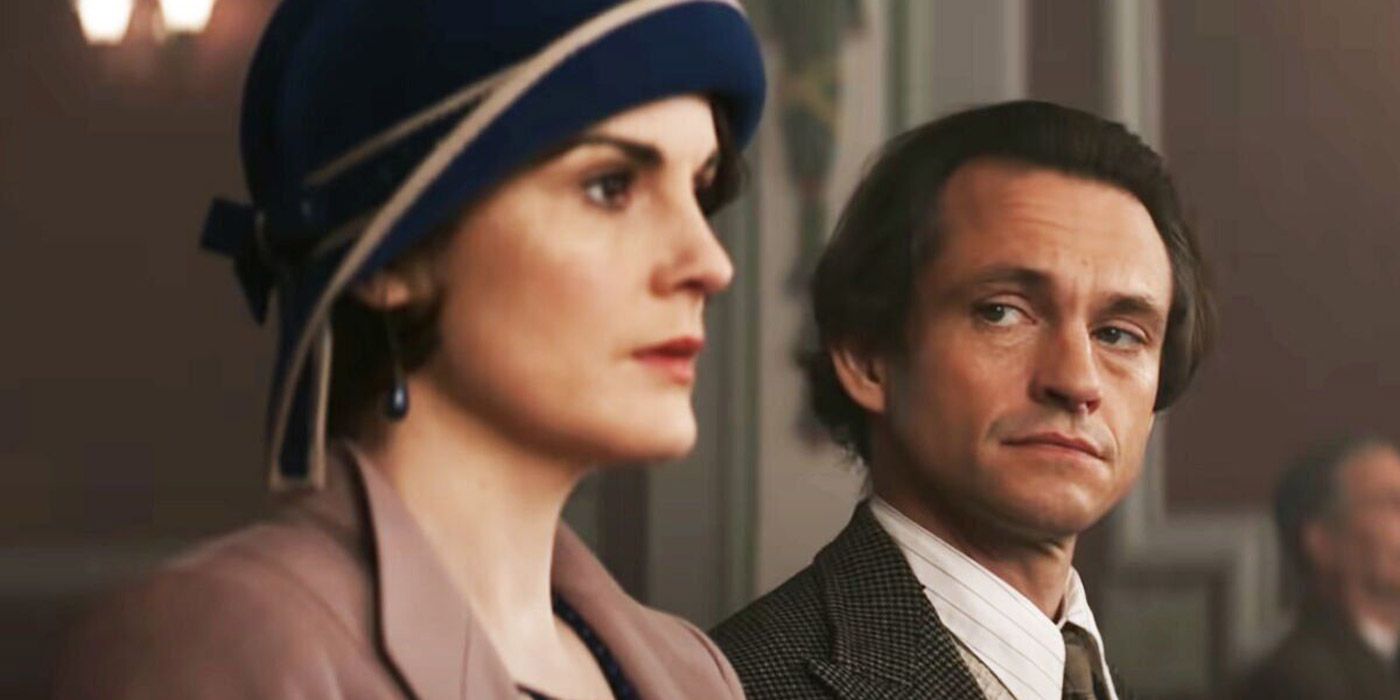
The Crawley family goes on a grand journey to the South of France to uncover the mystery of the dowager countess's newly inherited villa.
Check out our interview with Downton Abbey stars Hugh Bonneville & Elizabeth McGovern, as well as Laura Carmichael & Allen Leech.
Downton Abbey: A New Era is currently playing in theaters.
Comments
Post a Comment